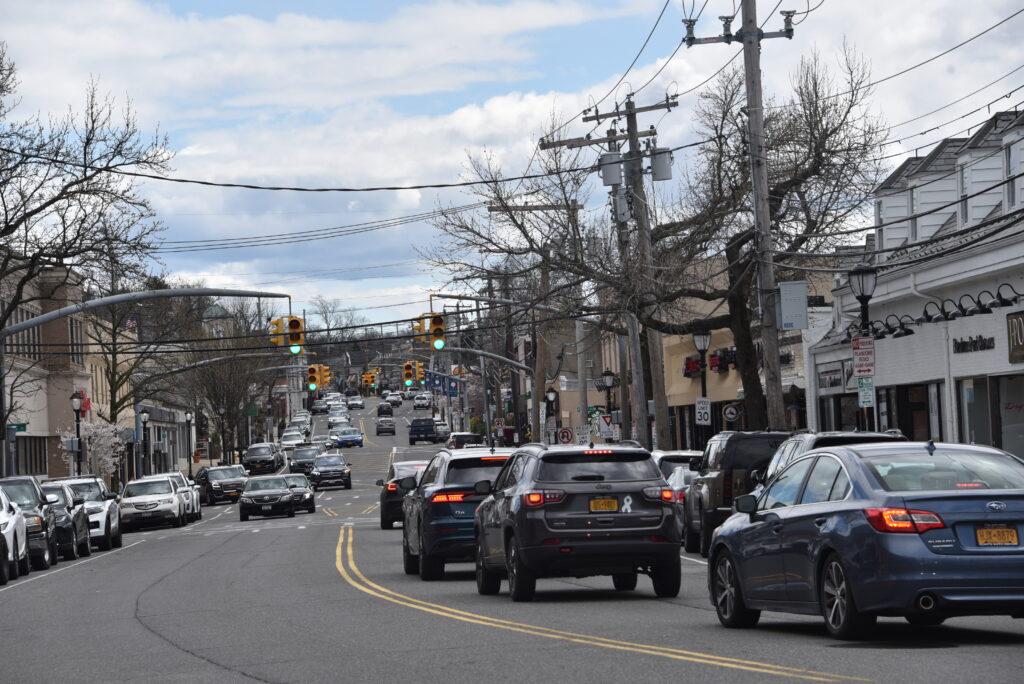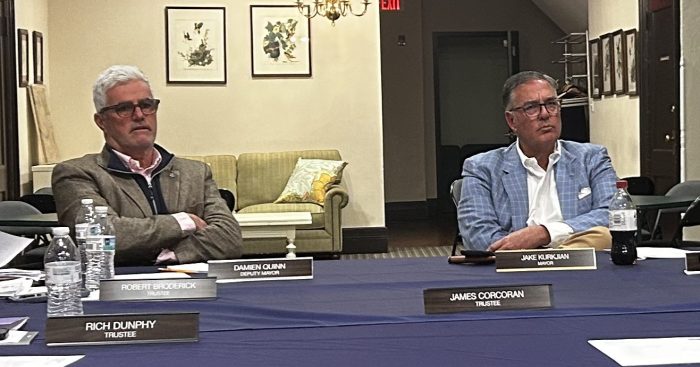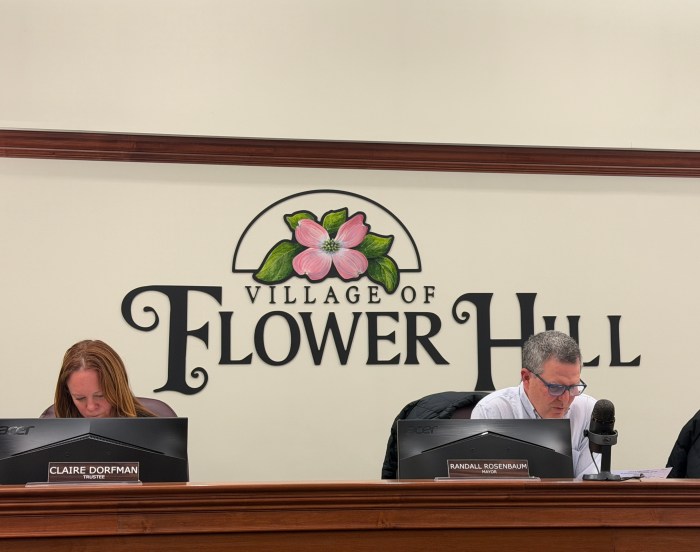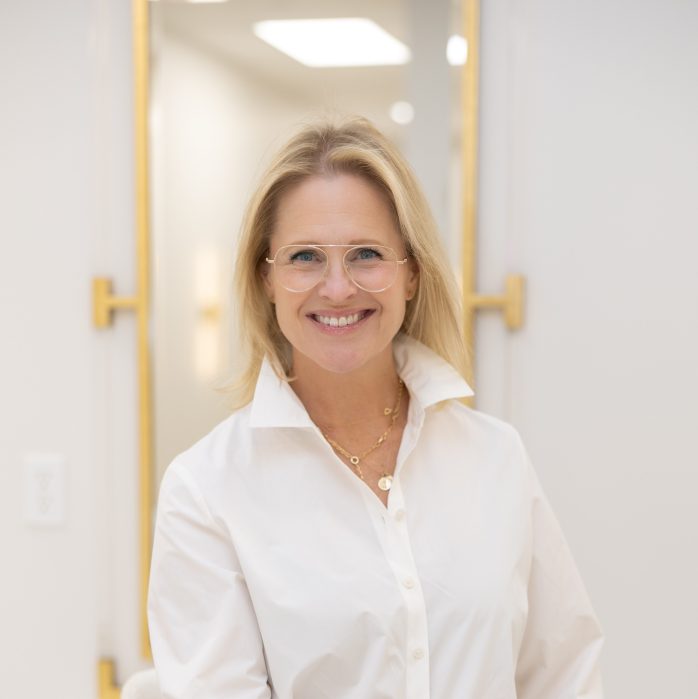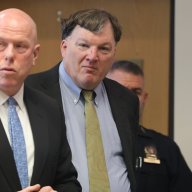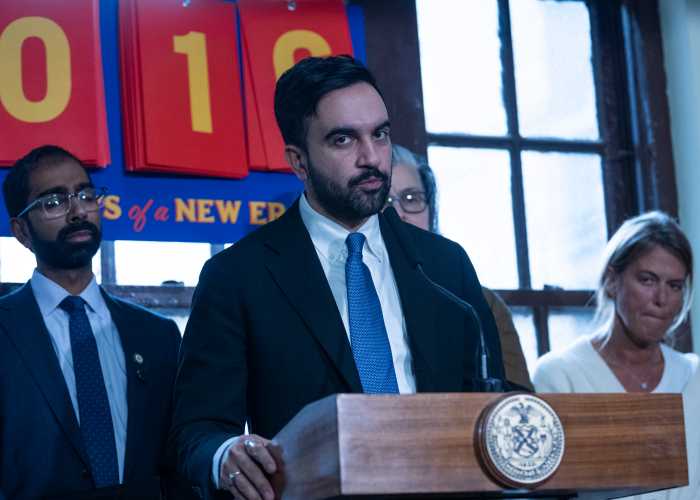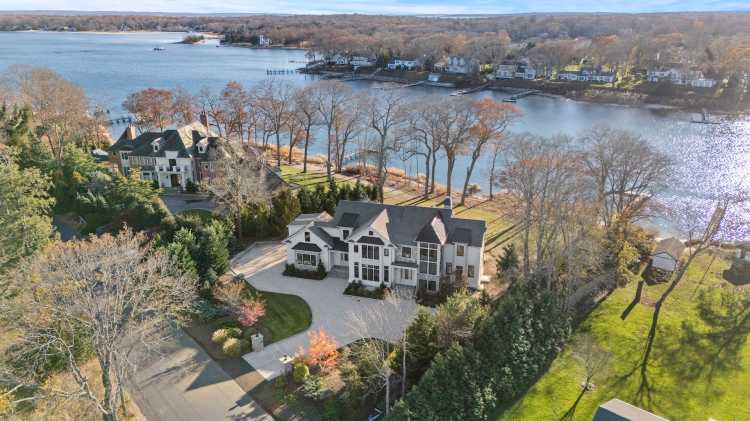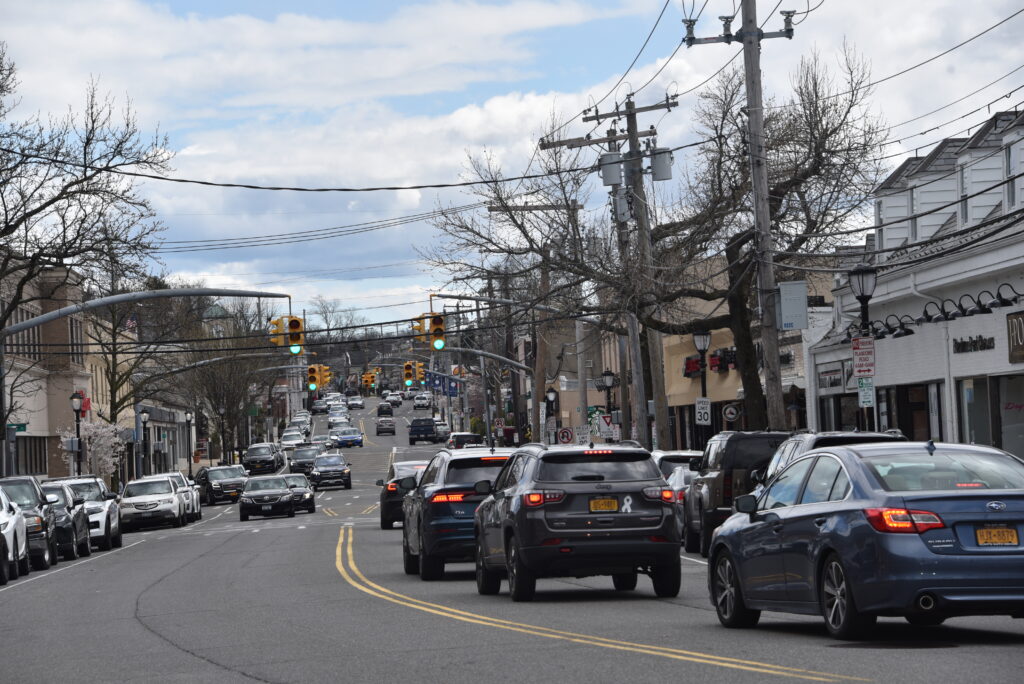
Board votes to approve Plandome Road sewer main
The Town of North Hempstead Town Board gave its unanimous, symbolic support for the Plandome Road sewer project at its March 14 meeting.
Such a formal vote had been requested by the Great Neck Water Pollution Control District (GNWPCD), which will use a $5 million state grant secured by Assemblywoman Gina Sillitti (D–Port Washington) to place a sewer line under the main business thoroughfare. With the vote secured, Commissioner Steve Reiter told trustees, the district can begin its planning process.
However, the Democratic majority once again blocked a plan by Supervisor Jen DeSena to move about $3.1 million of American Rescue Plan Act (ARPA) moneys under town control into a dedicated fund to help with the second part of the infrastructure project—attaching “lateral” piping (also called spurs) to the main line to help connect 88 properties in order to complete the sewering of Plandome Road (and adjacent streets).
With Councilman Robert Troiano absent, fellow Democrat councilmembers Veronica Lurvey, Mariann Dalimonte and Peter Zuckerman voted to defer a resolution introduced by the supervisor to the April 4 meeting. DeSena, a Democrat who caucuses with the Republicans, was joined by Dennis Walsh and David Adhami in favor of Resolution 75, which would have transferred the funds.
The Democrats had vetoed a similar resolution in January, saying they needed more time to make certain that using ARPA moneys to partially aid private businesses would be legal. They hoped that an answer would be forthcoming before the April 4 town board meeting, where they promise to give DeSena’s proposal another look.
“This project is something that residents have been asking for for many years, and I’m proud to move this long stalled project forward tonight,” DeSena said in introducing the resolution. “For over 50 years now, the residents and businesses along Plandome Road have had to rely on septic tanks and over time this has led to numerous issues like the potential impact excess nitrogen flows are having on Manhasset Bay, including on our oysters, and the significant financial burden these septic tanks place on our businesses.”
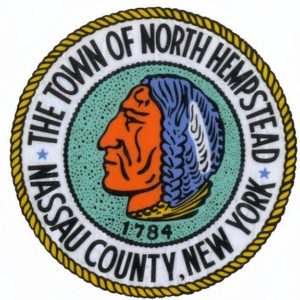 She added, “Individual businesses on Plandome Road spend upwards of $70,000 on septic services in any given year. That is a truly astronomical number. And it’s absolutely cost prohibitive for anyone looking to open a business here. This must change. Over the last year, I’ve held meetings with the various stakeholders in the project, including the Great Neck Water Pollution Control District, the Manhasset Chamber of Commerce, and my fellow councilmembers, where it was discussed how my administration can best move this project forward, as it has stalled for years.”
She added, “Individual businesses on Plandome Road spend upwards of $70,000 on septic services in any given year. That is a truly astronomical number. And it’s absolutely cost prohibitive for anyone looking to open a business here. This must change. Over the last year, I’ve held meetings with the various stakeholders in the project, including the Great Neck Water Pollution Control District, the Manhasset Chamber of Commerce, and my fellow councilmembers, where it was discussed how my administration can best move this project forward, as it has stalled for years.”
DeSena’s proposal envisioned a grant program administered by the town in which businesses would be partially reimbursed for the costs associated with connecting to the expanded sewer system.
“This grant program is designed to incentivize our businesses to complete the process within a certain window, which would coincide with the construction of the expanded sewer line, speeding up the construction process and keeping costs low, as roads and sidewalks would only need to be opened up once in this process” DeSena said. “In addition to the grant program, the town will utilize a portion of these allocated ARPA funds to cover the repaving and reconstruction of the roads and sidewalks which will be disturbed by this project.”
The supervisor concluded, “It’s important to note that while this resolution would allocate the funds tonight, this is largely an administrative step to transfer the funds into a dedicated capital account for the project, so my administration can continue to take steps forward to make this dream a reality. This is a once in a lifetime opportunity. ARPA funds were specifically designed to allow for grant programs such as this, whereas normally government funds cannot be used this way. Our businesses, our residents, our environment and the future of our Plandome Road business districts deserve this. It’s time to get it done.”
Chamber Weighs In
Matt Donno, co-president of the Manhasset Chamber of Commerce, and his father Robbie, who have taken the initiative to make the sewering of Plandome Road a reality, both urged the trustees to vote for Resolution 75.
“If you want to be in a town with empty storefronts that can’t succeed, maybe you shouldn’t help them at all,” Matt Donno said after noting how the pandemic had decimated Plandome Road businesses. “The Manhasset Chamber has taken on the [task] of calling engineers, getting prices on pumps, getting prices on the construction, doing the job of you, the board, that should be representing the district and the people. But you’re not doing that. We’re doing that. Because we care about this community, we care about our businesses and we’re trying to get the project done working with you.”
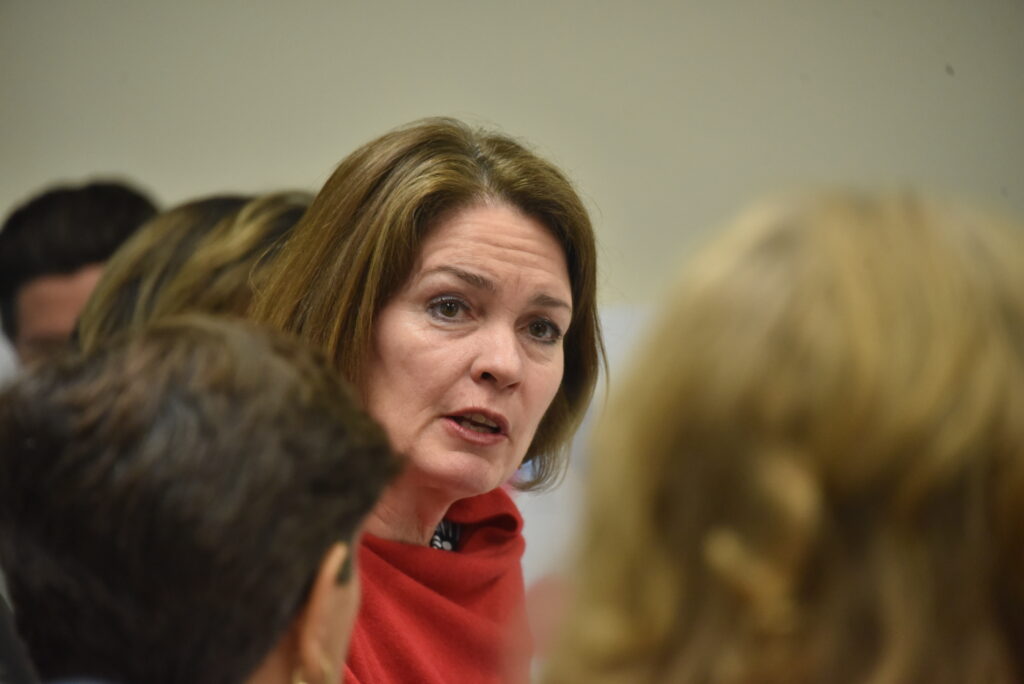
Robbie Donno summarized the evolution of the project, including the partnership with the Council of the Greater Manhasset Civic Associations and the GNWPCD. He spoke of the 2020 feasibility study sponsored by former Assemblyman Anthony D’Urso and undertaken by the GNWPCD at the behest of the chamber and business community. The study envisioned a much more expensive path to sewering, as well as a complex legal maneuver wherein the GNWPCD would annex the business district.
Thanks to some creative lawyering and planning, the cost of the project had shrunk by more than half, and individual property owners could make a decision on whether or not to attach to the sewer. The attachment and annual user fees under this alternate would be much lower rather than belonging to a taxing district. In addition, expanding the legal borders of the district would have involved getting town and state approval and would have delayed construction for months, if not years.
“The pipe will go in the ground, but now we’ve got to hook it up—and the ARPA funds are perfectly suited for this,” Donno told the board. “We’ve done some pretty creative things here. And I’m excited to be a part of this program, because it does have so much impact in so many ways. This is a project that should go forward. If we do this, [it will be] a template to sewer other parts of our town. There’s no other proposal on the table today that is going to impact more people for a longer period of time. So I’m asking that this board pass this.”
The Legal Tangle
Town Attorney John Chiara said he had been exploring the legal issues in consultation with Matthew McDonough, an attorney retained by the Manhasset Chamber of Commerce to provide guidance on the use of ARPA funds. However, he was not ready to provide a legal opinion at the March 14 meeting, and this shaped the Democrat trustees’ response.
In reaction to DeSena’s assertion that the county did use federal funds to help residents connect to a new sewer in Sea Cliff, Chiara cautioned that it was done under a different federal pandemic relief funding source. He referred back to the federal Clean Water Act and how its regulations affected the funding.
“I understand it’s not what people want to hear, but this is [the] complicated conversation that government lawyers have with other lawyers about this funding,” Chiara acknowledged. “And obviously, it’s up to the board to make the final decision, but it’s up to me to give you the advice [regarding the] complicated issues about funding.”
Dalimonte reaffirmed her reluctance to commit the funds without a clear indication that it would pass muster with the federal government.
“My issue is the ARPA funds have restrictions,” she said in pleading for an extension on the vote. “If we allocate this $3 million, and then we go and spend that $3 million…[and] the federal government comes in and says ‘Sorry, you are not allowed to allocate that $3 million.’ So now we have to bond for $3 million pay the $3 million back to the federal government and now every single taxpayer, 250,000 taxpayers in the Town of North Hempstead, just paid for that sewer line. I support putting the sewer line in, but we need to make sure we cross our t’s and dot our i’s on this.”
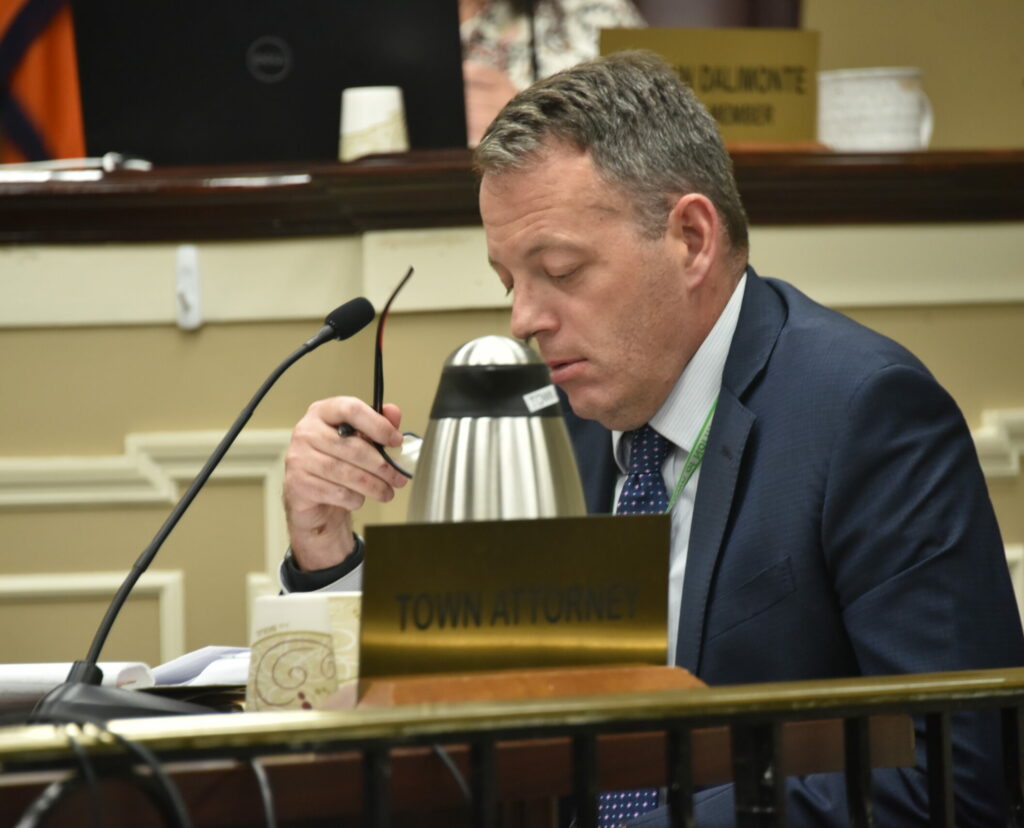
Robbie Donno challenged this view, stating, “The only way that this gets funded is through the ARPA funds. So let’s say you’re right, the federal government wakes up and goes, ‘Oh my God, the town used [these funds] to clean the water.’ If I were a councilperson. I’d like that fight. We’re fighting for the small business people. We’re fighting for the environment. We’re fighting for public health. Give me that platform. I would love it. Bring it on. You’re in a very new situation. You can’t lose on this. It’s a win-win situation.”
Lurvey pushed back, complaining that she got “more backup to decisions that I make up here with respect to a stop sign than there is with respect to this allocation of $3 million. I want to know where is that money going? Who is going to be controlling it? How is it going to be dispersed? Three million is a lot of money and I have a responsibility to the residents. I’ve been a supporter of this project right from the beginning, before the supervisor came to the town board. My point is that I want to know how it’s being spent. Who is doing it? When is it going to happen? That is not a lot to ask before allocating money. There’s no specific deadline tonight. We can take another month and get it done. I’m not sure why the rush tonight.”
She added, “We can’t give this money without a [request for proposal]. When a town gives money, it has to have some certain safeguards in place.”
Lurvey thanked the chamber reps for all their efforts and told them, “I would like to have a meeting if you could arrange this with the property owners. Some of them are here. Before we have a meeting, I wanted to work out exactly how we can help you. Is it grants, is it low interest loans? Who’s going to be your contractor? Let’s figure it out.”
Commissioner Speaks
GNWPC Commissioner Steve Reiter was in attendance and made note of Resolution 77, which gave the board’s support to inserting the pipe underneath Plandome Road.
“I’m here tonight to make sure that the pipe goes down the middle of the street and we don’t lose the $5 million grant money,” Reiter told trustees. “The argument over the ARPA money, who’s paying for the connections, what’s legal and what’s not legal, is not why I’m here tonight. And all of you are doing yourself a disservice by acting like this. It’s just childish, and it makes absolutely no sense.”

He added, “The problem that you have is that you can’t get offer money to private individuals. But what you can do is take the spurs from the pipe in the middle of the street to the property line. You may also use that [ARPA] money to refurbish the street after it’s dug up and to put in sidewalks, which belong to you. So that money should be allocated, but you’re arguing over something that is never going to happen until we get that pipe put [under] the street.”
He requested that Resolution 77 be voted on before Resolution 75 so that the district “can start to work on an engineering study that will answer some of the questions. We did a feasibility study. That feasibility study has been amended since then, like [using] different construction methods. So we want to take another look at it and the study will actually show what the costs are, what the timing is and what we have to do. They will probably also go into what is legal and what is not legal in terms of additional monies that could be used. That’s part and parcel of what we’re responsible for.”
Reiter warned, “We will not start this project until we have the support. Because once the project starts, we [spend] the money and then we get reimbursed by the state. If the town stops us, we will not get reimbursed. Unless you guys are wanting to go ahead and back this project and back the chance that we’re taking, we don’t have to do this at all. Then we will take a walk. It’s as simple as that.”
He added, “I’ve been doing this for five years. The first time I came into this building, none of you were here. And I pretty much got tossed out by [town leaders] who told me that the people in Manhasset didn’t want this project at all. And then we had 90-some odd businesses on Plandome Road that came to us and said, ‘Can [sewering] be done?’ So that’s when we started. It’s been five years that I’ve been working on this. Way before anybody that’s in front of me was on this board.”
Dalimonte asked Reiter, “So the $5 million that Assemblywoman Sillitti received, are you able to take $3 million of that money and use it for the laterals?”
He replied, “We’re pretty sure that we could put the pipeline in the middle of the street for $5 million. I don’t know if there’s going to be any money left over or not to be used [for the laterals]. No, the answer is no. Because we have to do construction and I have to submit bills that I get reimbursed for. And that engineering study will show what it’s being used for and the state’s going to be very strict with us about what they’ll pay us for and what they want.”
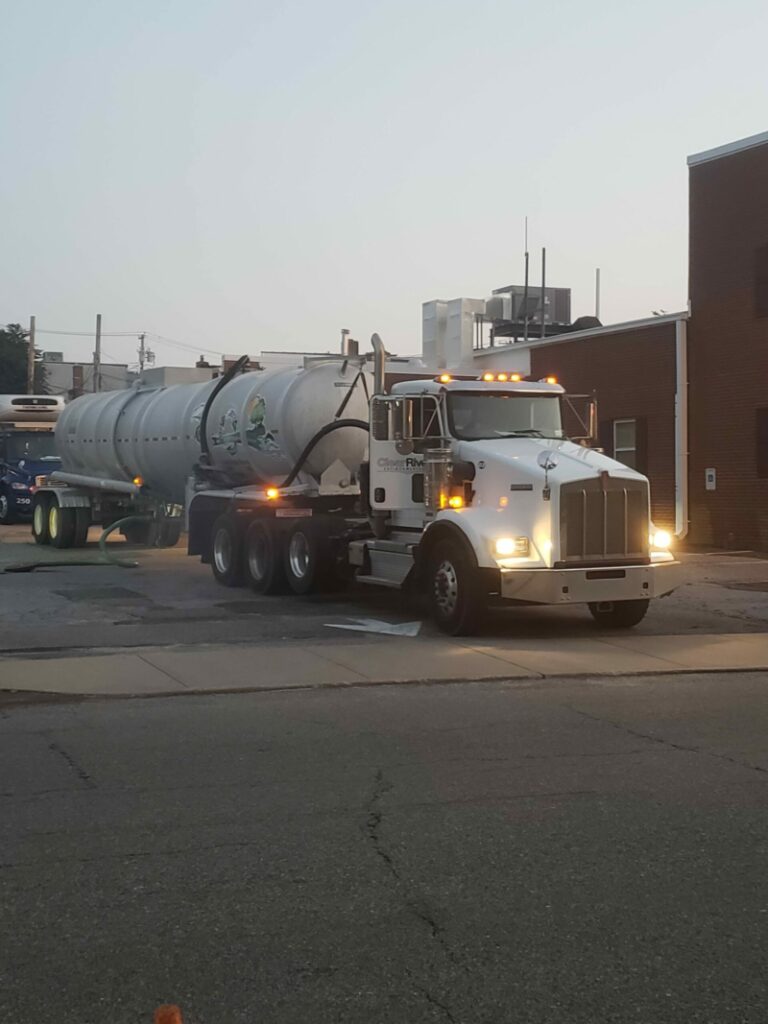
The commissioner alluded to the fickleness of electoral politics, stating, “I need to make sure that you guys aren’t going to walk away from me in the middle of this project. And then the district is going to be stuck with paying bills because the grant money’s not going to come through because we got stopped. Maybe we don’t get the road opening permit. That’s a possibility. I don’t know who’s going to be on the council, whose going to be councilmembers two or three years from now, when you’re ready to actually finish this thing. It’s going to take a while to do. So that’s why this Resolution [77 is necessary]. Otherwise I think we take a walk, quite honestly. Because it makes no sense to us, economically, it means nothing to us. It’s about 2 or 3 percent of our income. But this is an environmental project. That’s why this was undertaken by us. That’s why we we put the money in to do the feasibility study. Because it was the right thing to do for the people that live all along that Manhasset Bay and all our facility is on Manhasset Bay.”
Reiter noted that the district’s treatment plant is operating at 70 percent of capacity and he could not guarantee that other villages and developments in the district would not add to its load.
“It’s first come, first served. Legally, I have to take people in when they’re ready. So you guys need to be ready. It’s as simple as that,” he told trustees.
A Resident’s Views
Lynn King was one of the attendees who gave public comment on Resolution 75.
“I was born and raised in this town,” she began. “I’m a fourth generation person in this town. My family has owned property, commercial property as well as private residences. I have a long history here. I can remember 40 years ago, the town talking about bringing sewers, and they wouldn’t do it then. And I’m here to tell you as a commercial property owner, if you do not do this, you’re going to destroy Plandome Road. Because going forward, the only kind of tenants that will come into Plandome Road [are] personal services and food establishments, both of which need sewers. Our cesspools cannot accommodate them. We don’t have the space, besides the fact that they’re prohibitively expensive to install and maintain. As a property owner, I cannot tell you how many people call me inquiring about space we have available. [When] I explain that we are on cesspools, they are incredulous to hear that and they walk away. It’s not the rent that’s driving them away. It’s the fact that they can’t operate in a reasonable capacity.”
She wondered how trustees could face their constituents if they voted against Resolution 75.
“Why not make a decision [tonight]?” King replied when Dalimonte mentioned moving the vote to April 4.
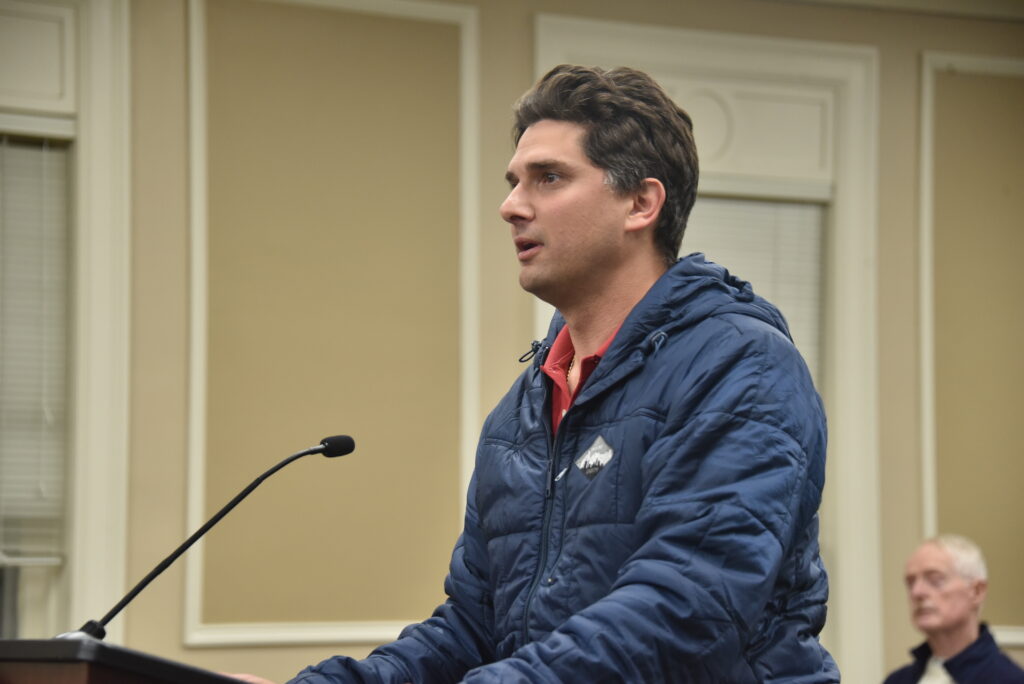
Dalimonte responded, “Do you think it’s fair to the rest of the residents in the Town of North Hempstead if we allocate this money and we spend that money and then have to repay the federal government? So I am asking for [consideration of Resolution 75] to be continued until April 4, so that we can have [answers]. Because if this money can’t be used for this, then it should go to other projects in the town. I will not vote on $3.1 million of the ARPA funds until we have an answer. I will leave it in that fund. We can use this money for the laterals [if we] get that approval from our attorney.”
When voting on moving the resolution to the April 4 meeting, Adhami complained, “We’ve talked about sewers for over three hours between this meeting and the last meeting. And it’s just somewhat infuriating. If you’re committed, just commit. Don’t stick your foot halfway in the water and then pull your foot back out. I mean, jump in headfirst and let’s get it done. This is something that’s been going on for years. And I think this is a classic example of government inefficiency and just wanting study after study and not getting anything done. So I vote no to adjourn this to April 4.”
Dalimonte asked Chiara, “Between now and April 4, can you please try and get us an answer?”
In all, the town received about $10.1 million under ARPA’s State and Local Fiscal Recovery Fund program funds. Trustees have not yet finalized how the town will spend these moneys.
Statements and Responses
In a statement released on March 16, DeSena said, “I am both shocked and extremely disappointed at the actions of the majority members of the town board, as they not only voted to block the funding for this grant program to administer this vital project, which has been something the community has been asking for for nearly 40 years, but they did so while exhibiting open disdain and hostility towards residents who came to speak in favor of the program. Our town has been presented with a once in a lifetime opportunity to complete this project at almost no cost to town taxpayers, as ARPA funds were specifically designed to allow for a grant program for a project such as this, whereas normally government funds cannot be used in this way. Our businesses, our residents, our environment and the future of our Plandome Road business district deserve this project. It’s incredibly sad to see all of these things sacrificed by the majority councilmembers to bolster their own political power, as they’re presumably looking to dole out these federal funds to their own pet projects.”
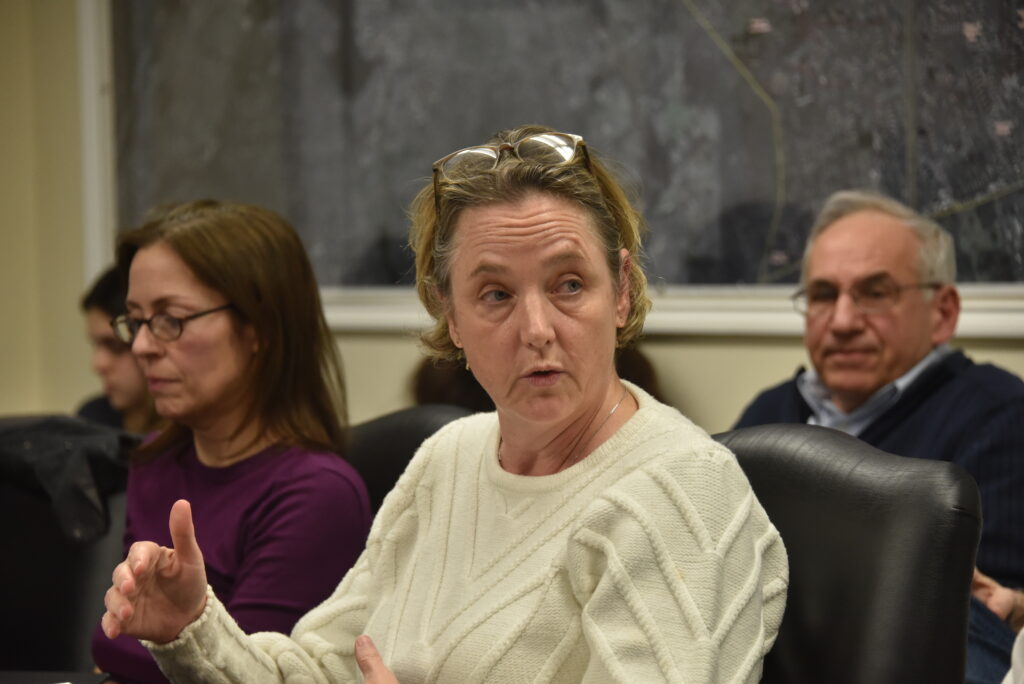
Lurvey provided the following response: “Enough already. The most basic facts about this project are unknown. Who will receive the money? How will it be spent? What controls will be in place? Is this a legally appropriate use of the funds? These are critically important questions to which there are no concrete answers. My priority is and has always been allocating $3 million in a prudent way that best serves the town. There should be no favoritism or politics at play. Our residents are sick and tired of petty squabbles. They want results, and it’s our job to deliver—in a responsible way, ignoring all the political noise and interference that the Supervisor keeps injecting with her coordinated attacks.”




